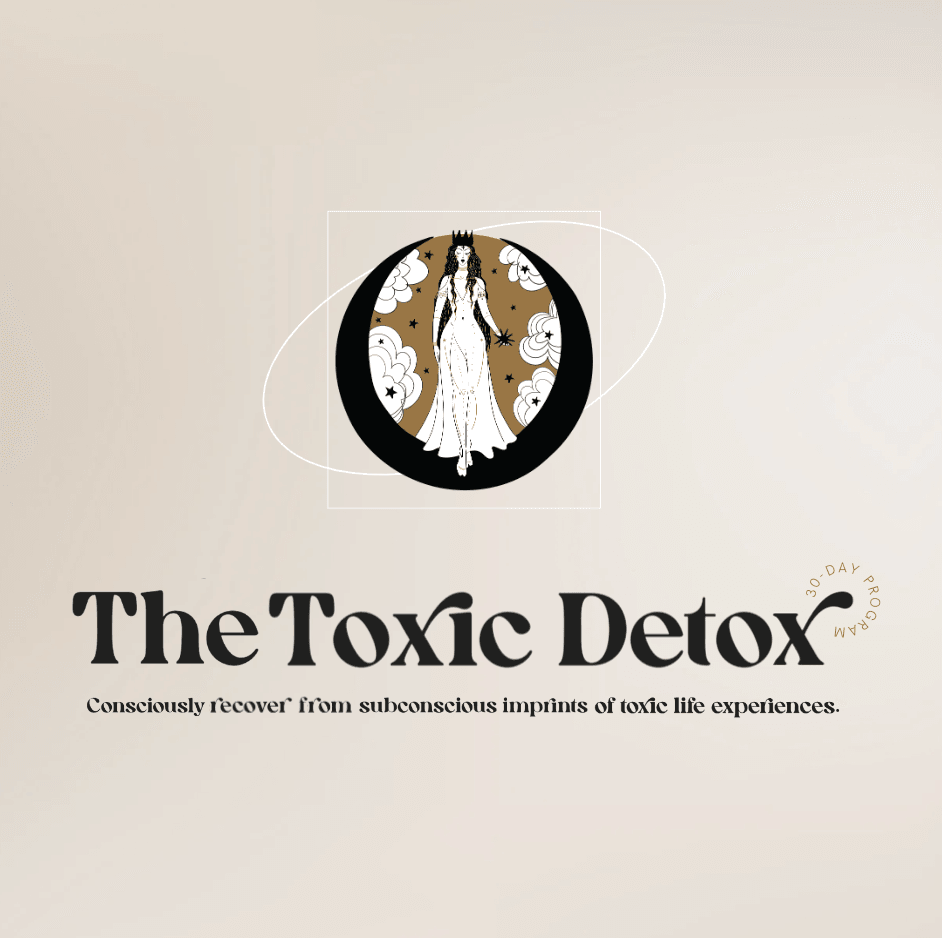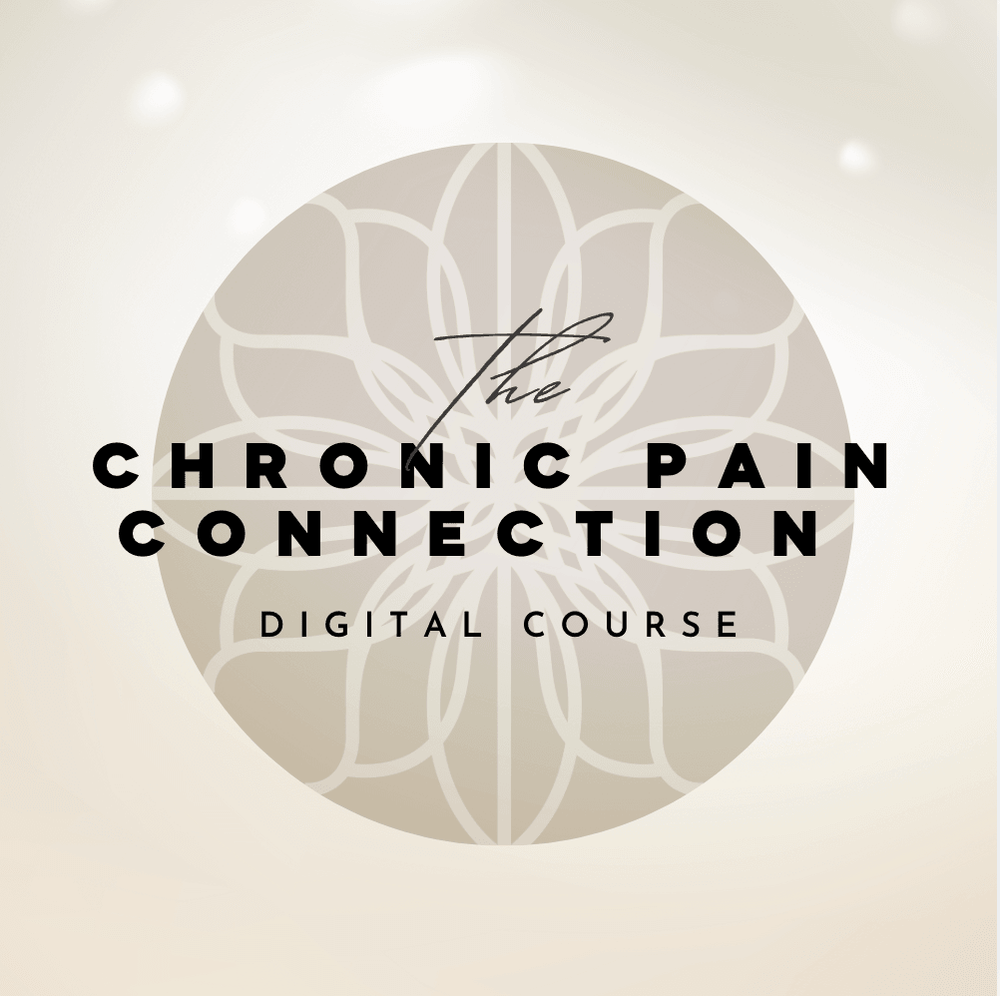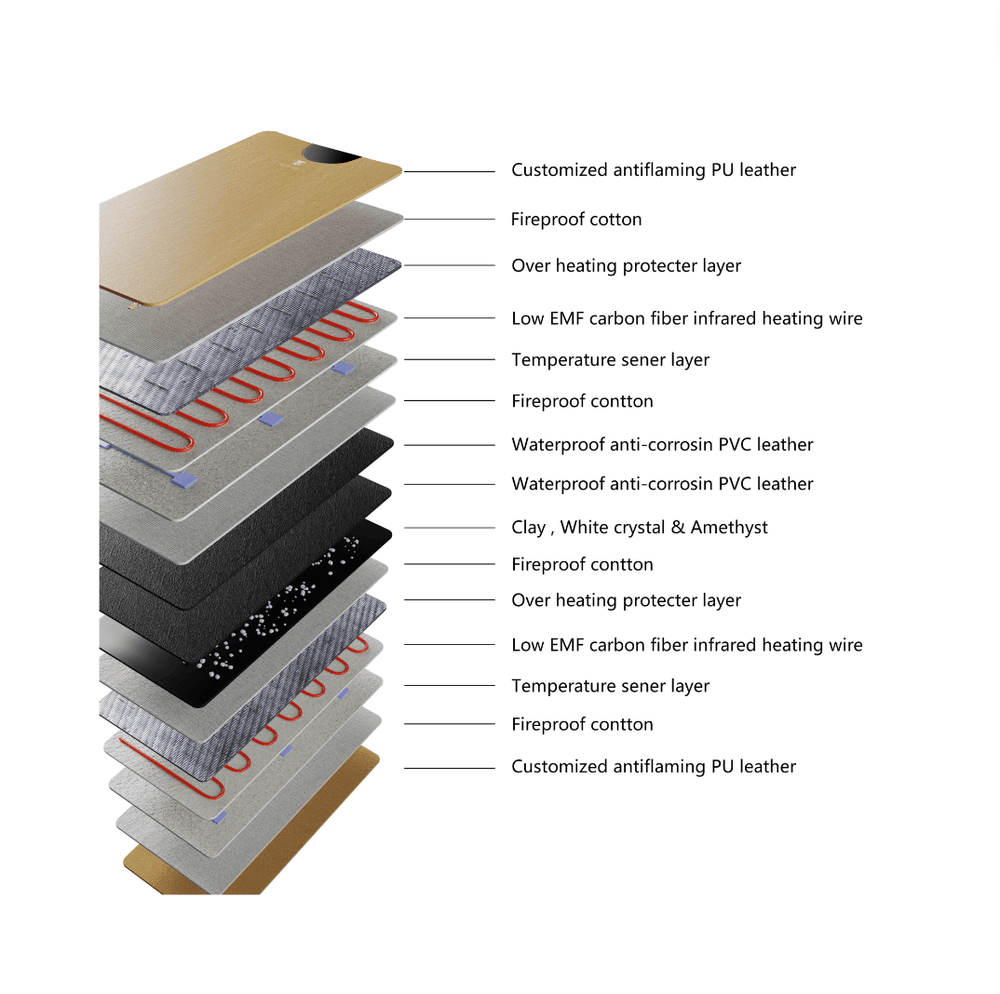Healing Trauma When You Can’t Find Your Words
Shattering the Silence
Let's talk about distressing life experiences that stay locked away in the corners of our minds, unspoken.
After experiencing a traumatic event, finding the right words can feel like an impossible challenge. And, it's not unusual to fail to be able to express your pain, difficulties, or stressful experiences.
I compare it to trying to tell someone a dream you had, but the memory is cloudy and slipping away as you wake up - it's just impossibly difficult to articulate to anyone by the time you can.
I want you to know that you don't have to find the words in order to start on a healing trauma journey from the nightmare(s) you experienced and that still haunt you today.

So. How Do The Voiceless Find Their Voices?
What if I told you that you could find answers to how those tragic life experiences are haunting your present without speaking a word?
Healing can actually begin even when you start tapping into your emotions. In fact, finding strength (ahem... your emotions) can be a powerful step towards nurturing your mental health.
In this post, we're going to talk a lot about what you're unable to talk about…..we'll explore the impact of trauma on mental health, how silence can actually be therapeutic for healing trauma, and natural strategies for finding your voice (internally or externally) to help you break free traumatic experiences that continue to affect you and improve your quality of life and get back to your normal routine.
If that’s the case for you, connecting with an online communtiy or a support group could be a good option. So you have people who share similar traumas work to help each other toward recovery and healing.
The Struggles of Traditional Talk Therapy
I know I’m not the only one…
Who has experienced trauma and been unable to talk about it out loud?
My story with stories that will never be spoken…. Is just that! The trauma is still too much even decades later.
I wasn't able to say anything after it happened. And I still can’t watch anything related to it. I’m triggered by hearing about someone in a certain profession. I can try to speak about it, but at a certain point the physical emotions rush, waterworks start, and I am frozen.
Whatever part of the brain that protects you… is 1,000,000% doing it’s job.
But one day, it hit me: maybe the key to healing trauma wasn't in trying to find the words, but in embracing my soul's ability to reveal the things that are triggering me in the present, and find meaning in that.
Because that is where the struggle is. The present.
Logically I know I'm not experiencing said trauma currently, I'm safe, but there are deep scars that the experience left.... like lack of control, being violated, not being seen, not being heard.
For me all of my past trauma and how it was showing up led to insane pain manifesting in my body. It was my decision to put my time on the schedule that took me on a discovery journey that offered answers I never got in any other way.
The birth of MytiZen Wellness, this blog, and the podcast came from my own very personal struggles, and finally epiphanies. And no, it's not a typo; MytiZen is a play on 'my time,' because healing trauma takes time, and it's different for everyone.

Trauma Healing: Insights into Mental Health Impact
The experience of trauma can vary greatly from person to person. Some individuals may experience flashbacks for a few months, while others may experience flashbacks for several years later.
It just really depends on so many different variables.
The first step is to give your feeling a name: trauma. It’s not just a small setback that you can shake off or need to feel ashamed about — it’s something that becomes a powerful force in a person’s life and becomes a part of your story.
So, what exactly is trauma?
The American Psychological Association (APA) describes traumatic stress as any disturbing experience, including childhood trauma, that results in significant fear, helplessness, dissociation, confusion, or other disruptive feelings intense enough to have a long-lasting negative effect on a person’s attitudes, behavior, and other aspects of functioning. Traumatic events, such as rape, war, industrial accidents, and natural disasters like earthquakes, often challenge an individual’s view of the world as a just, safe, and predictable place. Childhood neglect, sexual, physical, or verbal abuse, is also a traumatic experience that can have lasting effects on mental health.
In addition, trauma can also lead to physical symptoms like headaches, nausea, and dizziness. We all react to trauma in different ways, experiencing a wide range of physical and emotional reactions, including panic attacks. Some common reactions to trauma, including persistent fatigue, sleep disorders, nightmares, fear of recurrence, anxiety focused on flashbacks, depression, avoidance of emotions, sensations, or activities that are associated with the trauma, even remotely.
These are known as traumatic responses and typically last from a few days to a few months, gradually fading as you process the unsettling event. But even when you're feeling better, you may be troubled from time to time by painful memories or emotions—especially in response to triggers such as an anniversary of the event or something that reminds you of the trauma. This can result in an inability to go on with normal routines.
Trauma can also lead to various mental health concerns like anxiety, depression, and addiction, making daily life difficult. People can struggle to eat well, sleep, and enjoy being around loved ones.
Taking steps to address your response to your experience can give you a new perspective on life, free from the hold trauma can have on your life.
There is no “right” or “wrong” way to think, feel, or respond, so don't judge your own reactions or those of other people. Your responses are NORMAL reactions to ABNORMAL events.
The mental part of traumatic experiences.
Your brain is divided into two regions.
There's the intuitive, affective, visual, spatial, tactile, and creative parts of the brain are located on the right side. It retains memories of scent, touch, and sound.
Then there is the logical, analytical, sequential, linguistic, and rational part of the brain is called the left brain. It retains words, data, and factual information.
The ability to arrange events logically is directly affected by the deactivation of the left hemisphere (the left side contains the speech centers of the brain, including Broca's region, which blacks out during trauma).
This could be one of the reasons why it's not always easy for people to express their trauma or why talk therapy by itself might not be sufficient to promote healing.
Whatever the reason, it's important to remember that it's okay to not have all the answers. Healing is a journey, and sometimes that journey can begin in silence.
The physical part of traumatic experiences.
My journey revealed that past traumas can unknowingly manifest as chronic pain, silently becoming a saboteur of one's well-being.
Hyperarousal (or hypervigilance) is a common symptom of traumatic experiences. It keeps the body prepared, causing sleep disturbances, muscle tension, and heightened startle responses. These symptoms can persist long after the trauma.
Trauma can result in long-term physical health issues as well. Those who have experienced trauma are approximately three times more susceptible to conditions such as irritable bowel syndrome, chronic pain, fibromyalgia, and chronic fatigue syndrome.
Trauma is not purely in your head. It has a physical impact on your body, disrupting memory storage and altering your brain.
What Does Processing Trauma Really Mean?
The buzz around #Traumahealing on TikTok is proof—we're all looking for answers.
To process trauma, one must confront the emotions and thoughts tied to the experience. Take the necessary time to acknowledge and process your emotions connected to the trauma without rushing the healing process.
But, and here's the kicker, it doesn't necessarily mean you need to delve into the gory details. In fact, some studies have proved this triggering and detrimental. And others who have C-PTSD may never be able to put their story together.
Trauma Therapy Has Changed and Is No Longer Just Vocalizing Trauma
The mantra "Speak your truth" echoes, but as we previously mentioned vocalizing trauma isn't the only path to healing.
Traditionally, we believed it was cathartic, a way to release pent-up emotions. Vocalizing trauma is one powerful tool, but it's not the only one. Healing is absolutely multi-faceted.
The overall goal of healing trauma is to develop skills to deal with the ways trauma still manifests in your life. Progress means those waves of panic, fear, or despair strike less often. Bad days will still come, but you'll be empowered to not let them impair you as significantly.
As a survivor myself….It’s comforting to note that trauma therapy has evolved; it's not just about vocalizing trauma anymore. It involves understanding the impact of the trauma on your present-day life and learning how to cope with it.
Trauma Therapy Today: Transforming Perspectives
- Back Then to Focus on Now: The goal has shifted from remembering trauma to repairing it. Therapists now focus on how trauma lives in your body, brain, and nervous system now. It's about your present, not just your past.
- The aim is Compassion for the Past Self: The focus is on developing a compassionate sense of what you've been through. It's about undoing shame and building the capacity for self-compassion. It's not just about telling your story; it's about cultivating a compassionate attitude towards yourself.
- You're Trying to Cope, Not Self-Sabotaging: Unsafe behaviors aren't seen as self-sabotage anymore. They're viewed as desperate attempts to regulate a traumatized nervous system. Insight heals, but it follows emotion processing and relational connection.
- Words Aren't Enough: Neuroscience tells us that unprocessed trauma can't be put into words initially. Trauma therapy gradually processes the chaos of trauma so that you can eventually connect and articulate it.
- I Care for the Traumatized Part of Me: The shift is from "There's something wrong with me" to "I care for the traumatized part of me." It's a move towards self-compassion, recognizing the strength in acknowledging past injuries.
- Transform the Feelings, Not Just the Thoughts: Healing trauma works on helping you safely access your feelings, held deep in the body and brain. Transforming feelings, not just changing thoughts, is the key to healing trauma.

Empowering Silent Journeys: How Silence Can Actually Be Therapeutic for Healing Trauma
The power of silence and tapping into mindfulness
Silence can be a powerful tool for healing. It gives us the opportunity to reflect, to process our emotions, and to find our own inner strength.
Instead of fighting against the silence, try embracing it. Give yourself permission to be still, to sit with your emotions without judgment. Take the time to listen to your body and mind, and trust that they will guide you toward healing trauma.
Patience and self-compassion
Healing takes time, and it's important to be patient with yourself. Remember that healing trauma is not linear, and there will be ups and downs along the way. Be kind to yourself, practice self-compassion, and celebrate even the smallest epiphanies.
Embracing your inner voice
As you continue on your healing journey, remember that your inner voice matters. It may take time to find the right words, even if they are never spoken out loud, but when you do, they will be powerful.
Facing The Invisible Bruises
These little battle scars actually hold some pretty powerful clues about why we feel the way we do and why we act the way we do.
Remember the elusive dream analogy from earlier? The best way I can describe emotional healing is being able to be in control of filling in the story.
Remember the deep scars that the experience left.... like lack of control, being violated, not being seen, not being heard?
Developing emotional intelligence involves acknowledging and responding intentionally to the emotion you are experiencing.
Imagine if in the moment you can realize that you are actually experiencing a feeling of a lack of control, not being seen, not being heard, and disconnecting the physical reaction from the emotional one.
By cultivating healthier coping mechanisms you can see the dots that connect your past with your present, and suddenly, things start to make more sense.
The act of taking a fresh look at those reactions can yield remarkable results. Shifting our perspective lightens emotional burdens while embracing those vulnerabilities that can strengthen our understanding and empathy.
Rituals For Resilience:
Remember, healing is possible
Finding strength in silence is not always easy, but it is possible. Trust in your own resilience and know that healing is a journey that takes time. Embrace the silence, listen to your inner voice, and find comfort in the journey of healing when you can't find your words.

If You Are a MytiZen Customer:
- Our journal provides a structured yet flexible approach to guide individuals through intentional self-reflection, mindfulness, and the cultivation of a positive mindset.
- The gentle heat of the infrared sauna blanket can help soothe tense muscles and release stress accumulated over time. As you rest, envision the stress and tension melting away.
- Utilize your self-massage tools to target areas of tension and discomfort. Focus on areas where stress accumulates. Apply gentle pressure and explore various techniques, promoting fascia release and relaxation. This practice can help alleviate physical discomfort and restore a sense of ease.
- Indulge in a rejuvenating sound bath session and coax your nervous system into a state of calm and ease. Feel the harmonious sounds wash over you, alleviating stress and promoting a sense of tranquility.
- Engage in guided meditations designed to support relaxation and healing on the MytiZen™ App. Guided meditations can help rewire neural pathways and promote a sense of safety and empowerment.
If You Aren't (yet) a MytiZen Customer:
- Designate a corner of your home as a cozy retreat. Then create a cozy sanctuary where you can rest and recharge. Surround yourself with comforting elements like soft blankets, soothing lighting, and calming scents.
- Set aside time to simply be, allowing your body to rest without any expectations. Give yourself permission to rest and allow your body to sink into relaxation.
- Engage in breathwork exercises to regulate your nervous system. This practice can help reduce cortisol levels and promote relaxation. Practice deep breathing exercises to signal to your body that it's safe to relax.
- Create your own sound bath experience using meditation apps or online resources. Choose soothing sounds, such as gentle rain, ocean waves, or calming music, and listen with headphones to immerse yourself in tranquility.
- Nature has a remarkable way of soothing frayed nerves. Spend time outdoors, connecting with nature's healing energy. Feel the earth beneath your feet, listen to the rustling of leaves, the waves, and breathe in the fresh air.
By crafting and embracing rituals, individuals can ground themselves in the present, create a sense of continuity, and foster a deeper connection. Rituals need not be grand; they can be simple, everyday practices that hold personal significance.
Know that you’re not the only one…
Navigating triggers and healing from trauma takes time and effort, but it's worth it. Embrace vulnerability, share your story, and remember that seeking professional help is a brave step toward trauma healing. Your healing journey is ongoing. Be kind to yourself along the way.
And that's that!
In conclusion, trauma healing is a process that requires patience, self-care, and professional support.
Trauma can leave deep wounds that take time to heal. It's important to acknowledge that you are not alone in this journey. Others have also experienced chronic pain after trauma and understanding this can provide solace. By sharing your story, you create a space for vulnerability and connection with others who may be on a similar healing journey.
Giving yourself permission to rest and engage in relaxation techniques can regulate your nervous system and promote relaxation. Finding ways to soothe your frayed nerves is essential.
Additionally, embracing calming rituals, and seeking wellness strategies can provide a sense of grounding and help manage chronic pain and the effects of trauma. Remember, you're not alone on this journey. Sharing your story and seeking professional help from the right therapist are courageous steps towards healing. So be kind to yourself as you navigate the path of trauma healing.
DISCLAIMER:













